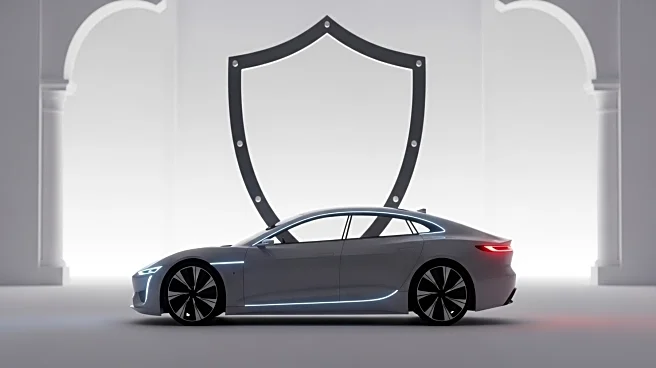What's Happening?
The European Union has implemented significant tariffs on Chinese-made electric vehicles (EVs) in response to what it perceives as unfair state subsidies. This move is aimed at protecting European car manufacturers from the growing competition posed by Chinese automakers, who have been rapidly expanding due to lower labor costs and strong consumer demand. Chinese companies, such as BYD, have been showcasing their technology-packed EVs at the Munich auto show, with models priced competitively against European offerings. Despite the tariffs, Chinese EV sales continue to grow, with BYD planning to start production in Hungary to circumvent the levies.
Why It's Important?
The EU's decision to impose tariffs on Chinese EVs highlights the ongoing trade tensions and competitive dynamics in the global automotive industry. European manufacturers, facing declining sales and profits, are under pressure to innovate and compete with the cost-effective and technologically advanced offerings from China. The tariffs are intended to level the playing field, but they also risk escalating trade disputes. The outcome of this policy could significantly impact the market share and strategic decisions of both European and Chinese automakers.
What's Next?
Chinese automakers are likely to continue expanding their presence in Europe, potentially through local manufacturing to avoid tariffs. European manufacturers may need to accelerate their adoption of new technologies and improve cost efficiencies to maintain competitiveness. The EU's trade policies will be closely watched for further developments, as they could influence global trade relations and the future of the automotive industry.












